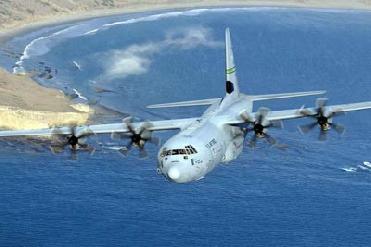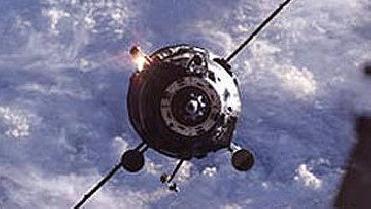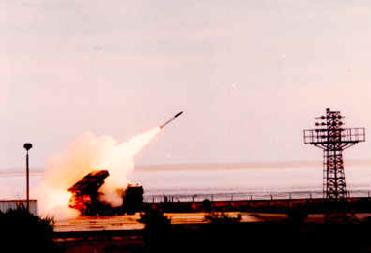
C-130J Super Hercules. Lockheed Martin Photo
The first of six Lockheed Martin's C-130J Super Hercules for India has recently emerged from the paint shop in Indian Air Force colours, at the company's Marietta, Georgia, facility, roughly six months before its scheduled delivery.
The defence contract was signed by the Indian govt. for $1 billion under the US Department of Defense's Foreign Military Sales (FMS) programme.
The aircraft would provide the Indian Army and the Indian Air Force (IAF) new special operations capabilities using the world's most advanced airlifter.
C-130J Super Hercules
The Lockheed Martin's C-130J Super Hercules is the world's most advanced four-engine turboprop tactical airlifter. It is the newest version of the Hercules family and possesses considerably updated technology.
The aircraft is designed and developed with mission flexibility in mind. It has a unique mix of agility and performance to consistently operate at a very high tempo operations efficiently and reliably.
The newest Hercules has the same rugged good looks of its predecessors, but is a greatly improved aircraft with the performance and capability to prove it.
Compared to the earlier C-130E, the maximum speed is 21 percent higher, climb time is reduced by up to 50 percent, cruising altitude is up to 40 percent higher, and the range is up to 40 percent longer.
With new engines and props, “the J” has set 54 world records for rate of climb, cruise speed, and both distance and altitude with payload.
The following major improvements are incorporated in the C-130J:
• A new propulsion system featuring four powerful 4,591 pshp Rolls-Royce AE2100D3 engines and an all-composite, six-bladed Dowty Aerospace R391 propeller system.
• Two-person, state-of-the-art flight station that includes four multifunctional LCD displays; two holographic head-up displays (HUD); and electronic, digital readouts for aircraft flight controls and operating and navigating systems. The displays and aircraft general lighting are compatible with the USAF’s night-vision imaging system.
• A 1553 data bus, two mission computers, and two backup bus interface units provide dual redundancy for the Hercules’ systems. In addition, the computers provide for an integrated diagnostics system that monitors and records the status of the aircraft’s structure and systems.
The C-130J Super Hercules is the only airlifter with the range and flexibility for emerging theaters and evolving concepts of operation.
From combat delivery, search and rescue, providing disaster relief, air-to-air/ground refueling and special operations to peacekeeping and humanitarian missions, infiltration/ exfiltration, maritime patrol, fire fighting, VIP transport and SIGINT/ELINT collection, this tactical transport aircraft has already proven itself in a wide range of missions.
This powerful and versatile aircraft can carry more than 95 percent of all tactical combat loads, delivering via airland or airdrop and can also handle full spectrum of operational mission requirements.
Current operators of the C-130J are the USAF (to include the Air Force Reserve Command and the Air National Guard), US Marine Corps (being their 4th variant after KC-130F, KC-130R and KC-130T[9]), US Coast Guard, Royal Air Force, Royal Australian Air Force, Danish Air Force, Royal Norwegian Air Force, Canadian Air Force, and the Italian Air Force.
India's C-130J
This is India's first experience with C-130s. Under the deal signed by both the governments, India will be receiving six aircraft, three years of initial support, training of aircrew and maintenance technicians, spares, ground support and test equipment, servicing carts, forklifts, loading vehicles, cargo pallets, and a team of technical specialists who will be based in India during the three year initial support period.
Also included in the package is India-unique operational equipment designed to increase Special Operations capabilities. In addition, the C-130J Super Hercules will provide the Indian Air Force with modern and effective airlift to support a wide range of national requirements.
The IAF's C-130J will be equipped with an Infrared Detection Set (IDS). With the help of IDS, the aircraft will be able to perform precision low-level flying, airdrops, and landing in blackout conditions. In keeping with the IAF requirements, Lockheed Martin has included Self protection systems and other features to ensure aircraft survivability in hostile air defence environments.
In addition the aircraft is equipped with air-to-air receiver refuelling capability for extended range operations. Lockheed Martin will integrate this equipment and other capabilities into the Indian configuration as agreed between the governments.
Deliveries to India will begin in 2011.
Factsheet
Length - 112 ft 9 in. / 34.37 m
Height - 38 ft 9 in. / 11.81 m
Wingspan - 132 ft 7 in. / 40.38 m
Horizontal tail span - 52 ft 8 in. / 16.05 m
Power plant - 4 Rolls-Royce AE2100D3,
4,591 pshp turboprop engines, Dowty R391,
6-blade propellers, all composite
Maximum takeoff weight (MTOW) - 164,000 lb / 74,390 kg
Maximum payload* (2.5 g) - 48,000 lb / 21,770 kg
Maximum cruise speed - 355 KTAS / 660 km/hr
Landing/takeoff ground roll
(typical assault mission) - 1,500 ft / 460 m
Payload* at 500 n.mi / 926 km - 47,000 lb** / 21,320 kg
Range with 35,000 lb / 24,690 kg - 2,900 n.mi** / 5,375 km
The C-130J cargo compartment is 55 feet long
(15 feet longer than the C-130J-Short)
*With wing relief fuel
**MIL-C-5011A reserves and no wing foam
- Courtesy:
Lockheed Martin
The Hindu
 Previous Article
Previous Article Next Article
Next Article













The Indian Air Force, in its flight trials evaluation report submitted before the Defence Ministry l..
view articleAn insight into the Medium Multi-Role Combat Aircraft competition...
view articleSky enthusiasts can now spot the International Space Station (ISS) commanded by Indian-American astr..
view article